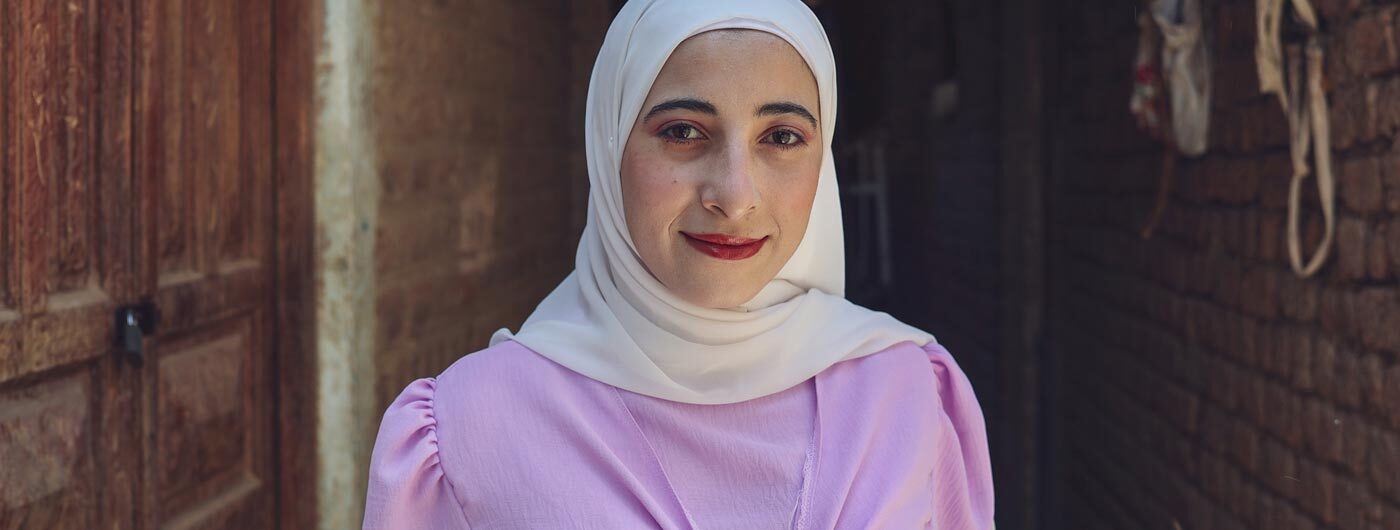
Hkmat from Upper Egypt, eco friendly fashion stitched with Euro Mediterranean cooperation
15 October 2025. In a village in the Abnoub district of Assiut, Upper Egypt, a young rural woman is moving forward with quiet resolve, redefining her working life while giving new purpose to fabric offcuts. Hkmat Geit Abdalohab, 23, a 2024 law graduate from Assiut University, has turned a lifelong habit of sewing into both an income and a label that bears her name. Under her brand “Hkmat”, she designs garments and custom‑embroidered cloth bags, commits to eco‑friendly fabrics and repurposes remnants into new accessories. With support from the Union for the Mediterranean (UfM) and the French Development Agency (AFD), she has taken entrepreneurship courses that strengthened the commercial side of her craft.
Hkmat’s first creation was something she wore herself; the next pieces were for her sisters, whose early encouragement and trust steadied her next steps. As small orders grew, she made a bold choice in her third year at university to turn passion into a profession — balancing law lectures with shifts in two sewing workshops to save start‑up capital and learn the market up close. The path was never easy: in rural settings, taste moves at a traditional pace, and reaching a target audience takes longer when the aim is to introduce experimentation and innovation in fashion.
Driven by a wish to ease the family’s finances, she found unwavering belief from both parents — a backing that gave her steadiness, courage and a clear horizon. Her skills were consolidated through three-month specialised training under the Youth Employment and Entrepreneurship Boost (YEEB) project, implemented by People Power Inclusion (PPI) with the Assiut Businesswomen’s Association. YEEB aims for economic empowerment of women in underserved communities in Egypt.
More than 80 participated in YEEB and received courses in business planning, marketing, financial management and accounting, sales, negotiation, and pricing. Participants also received one‑to‑one orientation sessions for technical assistance and financial management (including support to access available funding opportunities), and, where needed, psychological support. Before the training, Hkmat says she had never properly applied the basics of financial management; now she logs costs, consumption and profit with care.
Here the outcome of Euro‑Mediterranean co‑operation becomes tangible: the UfM Grant Scheme for green employment and entrepreneurship, financed by German and Spanish development co‑operation agencies — a model in which institutional partnership meets individual resolve to generate opportunity and hope.
For Hkmat, the sewing machine has become a tool for a broader vision: to serve all of Assiut first, then expand. She does not rule out seeing her pieces one day on what she calls her “future friends” in Barcelona, Milan, Rabat and Paris.
Her creed is simple: hold on to a dream and the journey grows lighter as you advance.
From Assiut, her story offers a compact illustration of what Euro‑Mediterranean co‑operation can mean when it moves from policy text to small, home‑based workshops: knowledge that travels through training and partnerships, trust that accumulates within households and opportunities that widen for anyone who starts with a single stitch and hopes to shift local taste. On the International Day of Rural Women, her path stands as practical proof that bridges between the institutional and the local can turn a hobby into a business — and a business into a platform for inspiration.
